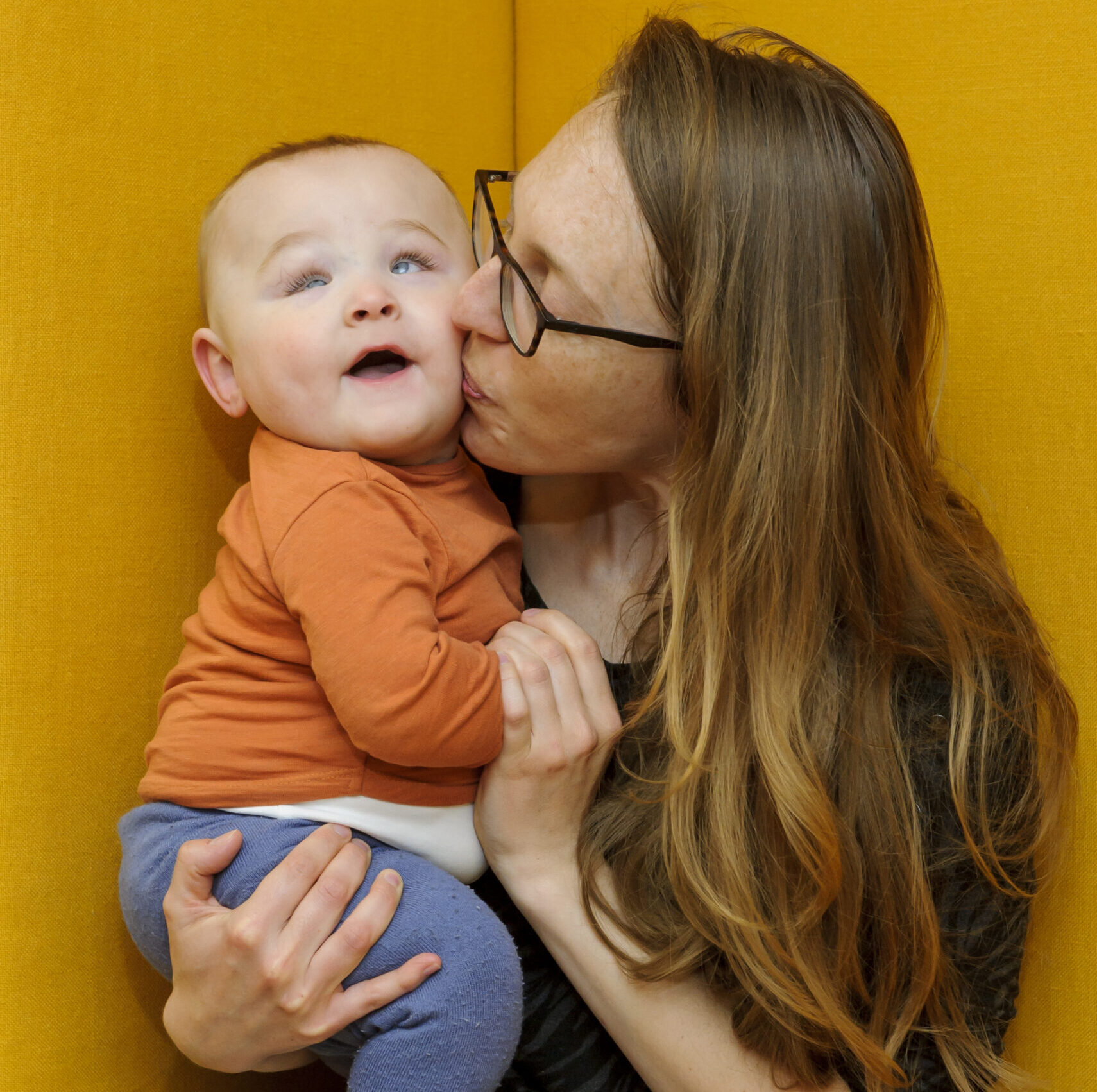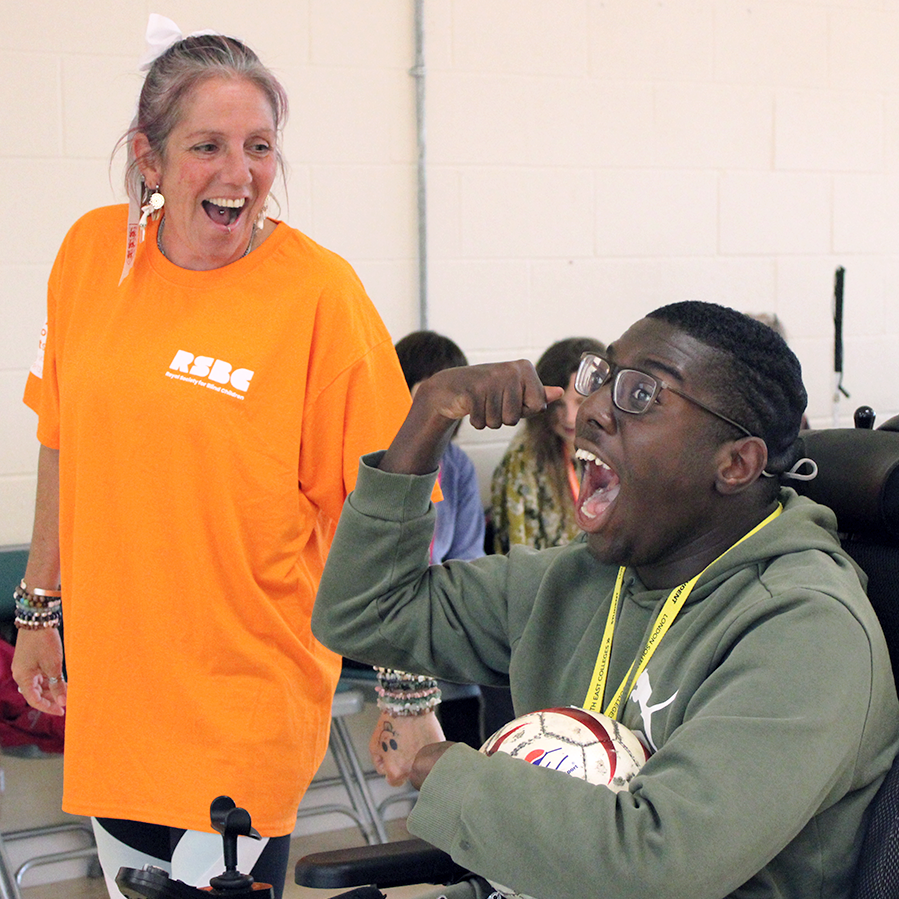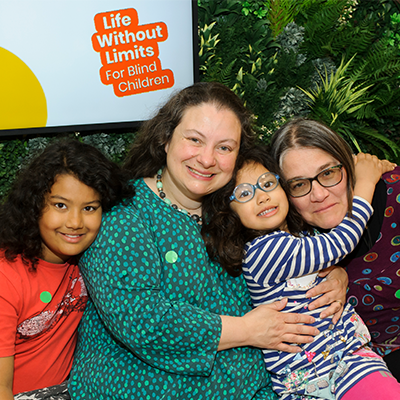Choosing the Right School
Choosing the Right School
Choosing a school is a big decision for you and your child and there are lots of things to consider. To help you feel confident in making this decision, we’ve put together some things to think about as you start to consider your options.
To help you get the full picture of the school support around you, it can be helpful to talk to other parents, your Local Authority and to research your local schools. This will hopefully give you a better idea of what might best suit your family and help you to think about any questions you might want to ask as you move forward.
Before you start looking for a school, your child’s needs will be assessed to help you choose an environment where they will receive the support they need.
- Often, they will have a clinical diagnosis from an ophthalmologist.
- You can ask your Local Authority Sensory Impairment Service for advice as to what support they may need at school. Your child may already be in the assessment process for an Education, Health and Care Plan (EHCP).
- A Qualified Teacher of the Vision Impaired (QTVI) may perform a functional vision assessment to assess how your child’s vision or lack of vision affects them. They will assess the extent of their visual impairment, the impact this will have on their learning, and the support they will need at school.
- It may be that they will also have an assessment carried out by an educational psychologist. They will look at the strengths your child has and the areas where they may need some additional support.
For children with additional or complex needs, a more detailed assessment is likely to take place as to how they are going to learn and thrive at school.
General things to check
Once you have an idea the kind of support that might best suit your child, you might want to begin by looking at:
- What Ofsted says about the school
- The school’s catchment area
- How long it takes to get to the school
- Does your Local Authority provide transport to and from school?
Things to check for vision impaired students
There are some things that are important to check when choosing a school for a vision impaired child.
Your Local Authority should be able to support you to think about the best options for your family. If your child has an Education, Health and Care Plan (EHCP), you can use this as a guide to check that a school would be able to support your child’s individual needs.
You can apply for an education, health and care plan (EHCP) for your child with your local authority.
The plan is a legal document that lists your child’s needs and what kind of support they are entitled to. The plan can, for example, help with:
- Making sure your child gets the right learning materials, for example, braille, tablets, screen readers
- Possible one-to-one support from staff
- Solving problems if things go wrong, or start to feel more difficult
If you don’t have an EHCP, it can be helpful make your own list of your child’s support needs, and use this to think about any questions you might have for a potential new school.
You might want to ask your nursery or primary school if they can recommend schools for your child. They often have a good idea which schools in the area can best support your child.
What to consider when choosing the right school for your child
- Check if the school has experience supporting children with vision impairments – if they don’t, talk to them about how they will tailor support to your child.
- Ask the school for their accessibility plan (every school should have one) – this makes sure the school doesn’t discriminate against pupils with a disability.
- Check out the school buildings and the campus – how easy will it be for your child to move around them?
- Plan how your child will get to and from school
Getting help with travel arrangements
It is important to think about how your child will get to school. It may be that you will provide transport for them, but depending on the level of your child’s needs and the location of their school, you may need some extra help.
If you think your child is likely to need support getting to and from school, it is important to find out whether there is any transport support available, before choosing a school.
Your Local Authority’s ‘Local Offer’
You may already be aware of the ‘Local Offer’ provided by your Local Authority. The Local Offer will outline the Local Authority policy for transport for children with SEN and the criteria that they use.
If your child is likely to need support getting to school you can find out what support may be available by visiting your Local Authority’s website and searching for their ‘Local Offer’, and the section marked ‘Transport/Special Educational Needs’.
Open Day
School open days are your opportunity to find out more about the school, how they can support your child, and if they would be a good fit for your family.
An open day has the potential to be overwhelming. Here are a few general things you’ll want to look out for:
- Think about the school building, considering the layout, any steps, the size and shape of the playground, and access to the toilets.
- Consider the lighting and sound levels. Does it feel very dark or bright? Are sounds muffled, clear or echoing?
- What does Ofsted say about the school, particularly the provision for children with special educational needs? Inspection reports are always a snapshot and when schools need to make improvements, they try to do so quickly, so do note the dates of any reports.
- Are staff enthusiastic, responsive and interested when you speak to them about your child? Did you get a sense the school is interested in knowing and understanding the individual needs of all children?
- If you visit when other children are at school, how are they engaging with their teachers and their learning?
- Think about whether you can picture your child thriving there, whether you feel comfortable approaching staff, how the school would fit the needs of your child as an individual, and your family as a whole.
More specific things to consider when visiting a school open day
The list of questions below are things you might want to be thinking about, as you meet with a potential school. If there are any questions you forget to ask on the day, having contact phone numbers for the SENDCO and head teacher will allow you to follow up later and arrange an additional meeting.
- How many children are in each class?
- What is the staff/child ratio like and how many support staff are there? Have any members of staff been trained to support children with vision impairment?
- Will my child have a dedicated teaching assistant?
- How can I be involved in decisions regarding my child?
- Does the library have large print or braille books, or access to them?
What support is available outside the classroom?
- What are the options for activities at break time?
- How do you support children to make friends and play together in the playground?
- If my child needs it, will there be some support at lunchtime?
- Will my child be able to be included in breakfast clubs/after school clubs? Will there be sufficient staff to ensure they are safe and happy?
- How will the school support my child’s developing independence, for example, being able to find their own peg to hang their coat on?
What experience does the school have with children with vision impairment?
- Has the school had any other children with vision impairment attending?
- If my child needs medication (e.g. eye drops), is there somebody with the appropriate skills and experience available?
- What are the best things I can do at home, to prepare my child to settle into school?
Teachers and children may not always understand the type of vision impairment your child might have, or how to best accommodate their needs in the classroom. Starting to create a ‘School Passport’ can be a fun way for your child to introduce themselves. It can be given to a new teacher, or any afterschool club staff, to make them aware of what makes your child feel most comfortable, the things they like and dislike, and can give a brief overview of how best to support their needs.
Throughout the process of choosing a school, it is important to keep your child involved the process and to take time to talk through any worries or anxieties they might have. Try to get them prepared in a positive way, and remember that starting school can be difficult for both the child and their parents, so try not to worry too much about some initial wobbles!
You may also like

No categories March 28, 2025
Mother’s Day: our CEO shares her story
Happy Mother’s Day to everyone celebrating! In recognition of this special day, we sat down with our CEO, Julie, to hear about her relationship with her daughter, Saime, who is registered blind.

No categories March 20, 2025
What our young poets have to say this World Poetry Day
We were delighted to host two workshop sessions with renowned poet Dave Steele recently, and they certainly fired up the imaginations of the young people who attended! We’re pleased to be able to showcase the incredible talent that came out of the workshops in the beautiful poems written by those attending below.
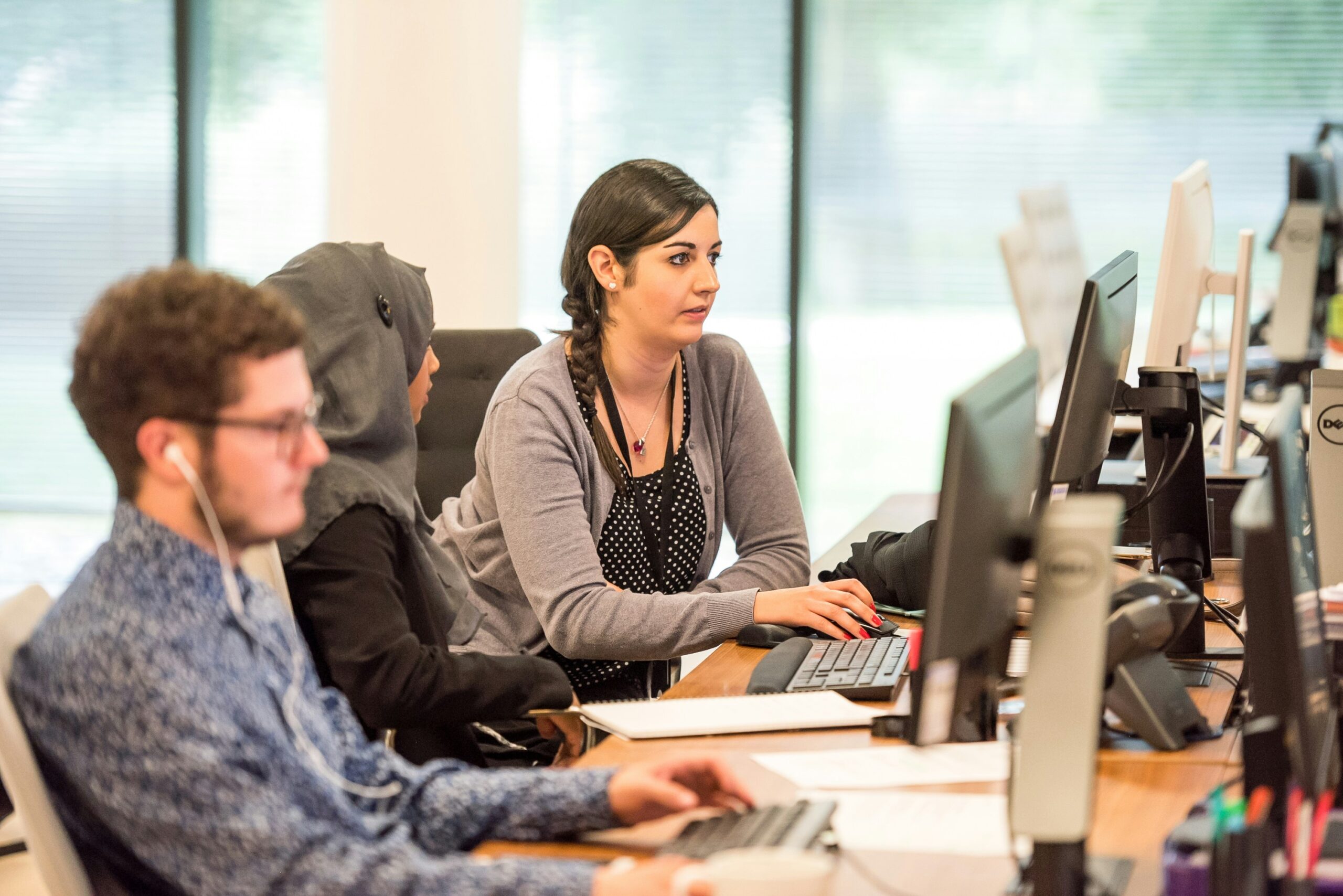
No categories March 10, 2025
RSBC’s 5 key reforms to support young people into work
The government has just announced plans for a major shakeup of the welfare system, with £6bn of proposed cuts. Personal Independence Payments (PIP) are a lifeline for many people in our community. We understand the system needs reform, and that tough times can call for tough measures. But cutting back on PIP without making it […]
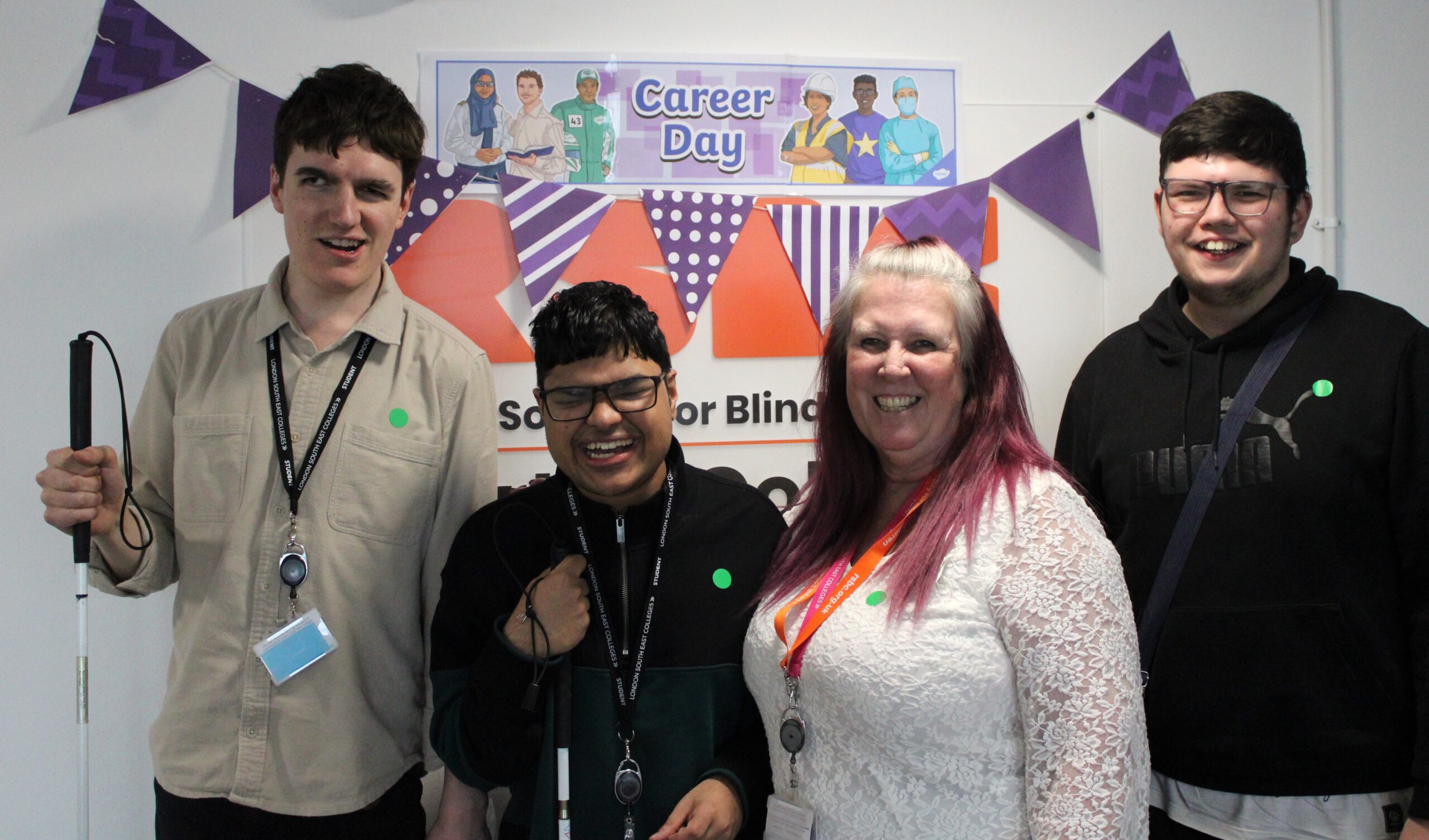
No categories March 7, 2025
Dorton College careers day: giving our students the confidence to shine
Too often, young people living with a vision impairment aren’t given the career opportunities they deserve. That’s why RSBC’s Dorton College hosted a careers day recently, inviting external speakers to inspire our students and help provide them with the tools they need to enter the world of work.
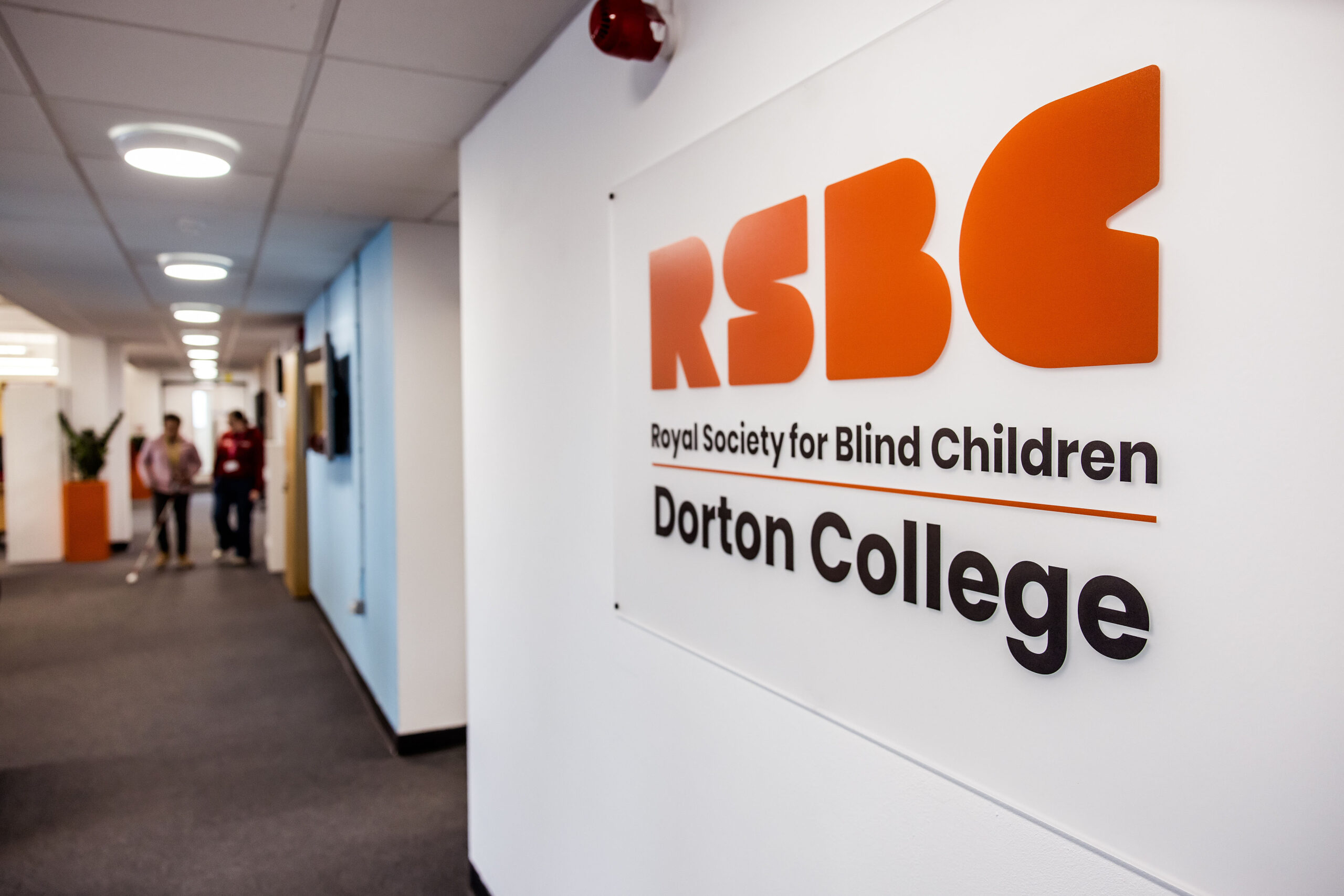
No categories March 5, 2025
Gary O’Donoghue’s win at the RTS Television Journalism Awards
Each year, the Royal Television Society hosts the Television Journalism Awards, celebrating the most prestigious change-makers in the British journalism space.

No categories March 4, 2025
Young people unlock their imagination at The Blind Poet’s workshops
Dave Steele, popularly known as The Blind Poet, is an internationally acclaimed and award-winning poet, author, speaker and singer – and an advocate for people with vision impairment.

No categories March 3, 2025
Helping young people be heard: RSBC’s Youth Voice Strategy Day
Recently, RSBC’s Youth Forum, Young Ambassadors and members of the RSBC team came together for a Youth Voice Strategy Day at our Life Without Limits Centre in London. The mission was simple: young people were tasked with coming up with their own objectives and create a roadmap for the future, which would help RSBC identify […]

No categories February 19, 2025
The Roundhouse becomes London’s first venue to use Navilens – with RSBC’s support
Iconic music and performing arts venue, the Roundhouse in Camden, has provided creative space that empowers people and communities since the 1960s. Its team is focused on unleashing the creative potential of young people and artists, giving them the opportunity to experiment, develop their skills, and be part of unforgettable moments with a lasting impact.

No categories February 14, 2025
A volunteer’s journey: Meet Joné
Joné has been volunteering with RSBC since August 2024. We spoke to her about why she wanted to become a volunteer and what her experience has been like so far.
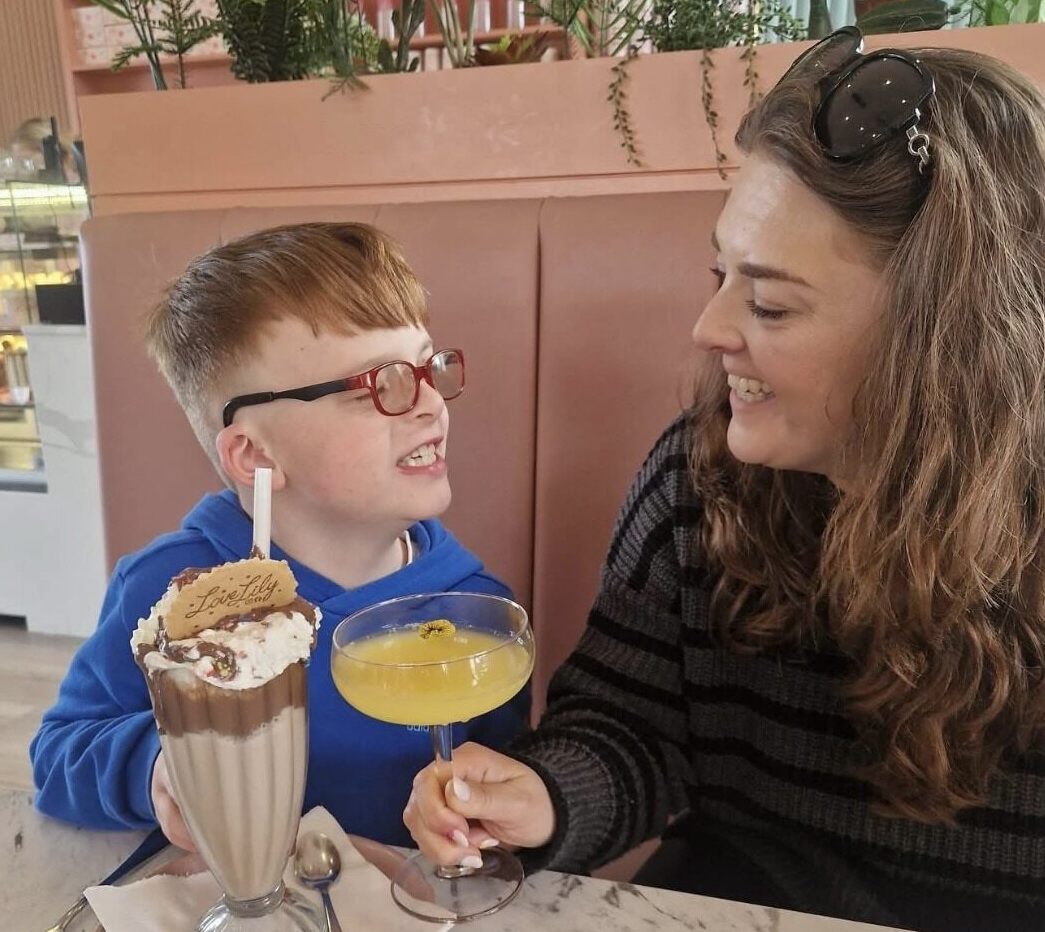
No categories January 30, 2025
George and Nicola’s story
George is an energetic and confident eight-year-old boy who lives in a bustling household with his mum, Nicola, his dad, and his baby brother Ted. It’s a home that’s filled with love and resilience as the family faces the challenges and celebrates the triumphs that vision impairment brings.

